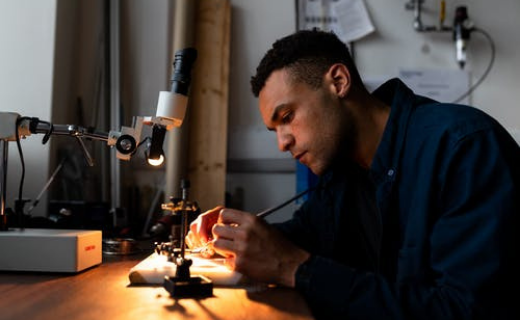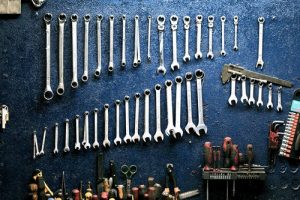CAR tech
Tips for more efficient workshop planning
Equipo CAR · 30/09/2021

The daily life of a mechanical workshop involves a lot of hustle and bustle with tasks in different spaces, vehicles entering and leaving, new customers arriving, etc. For this reason, correct planning of both tasks, workplaces, employees and materials as well as internal communication is essential to increase efficiency.
The challenge of every workshop is to repair vehicles in the most efficient way, in the shortest time. For this, internal organization is essential. Here are 7 tips that can have a positive impact on the efficiency of the workshop.
7 tips for efficient workshop planning
Definition of roles and objectives
The first essential practice is the clear definition of the workshop objectives and the role that each member of the staff will develop so that all work is aligned with the global goals of the business.
Determining who does what avoids doubts and deviations that involve a waste of time, errors, duplications, etc. Establishing an individual and collective route plan makes work easier and contributes to greater efficiency.
It should be noted that it is not only necessary to establish short-term goals, but also medium and long-term. To this we must add a forecast of future demand for the workshop’s materials and services to draw the line to follow and make decisions regarding the scope of this end.
Leadership
The organization of the workshop is important, but so is itscontrol, monitoring and supervision. The figure of a leader is essential to guarantee the achievement of the set objectives. In addition to this task, this profile is committed to maintaining a strategic and planning attitude, as well as the implementation of continuous training.
Communication and collaboration
Collaboration and communication between all workshop members is important when it comes to increasing performance and productivity, as the exchange of knowledge and opinions provides creative solutions and ideas.
Meetings, appointments, and communication in general allow the transmission of objectives, the exchange of ideas, the collection of feedbackfrom both employees (and sometimes customers), etc. Therefore, theinvolvement of the entire team is encouraged.
Delimitation of areas
If the space allows it, it is advisable to separate the customer reception area from the working area. As well as to delimit the specific areas for each type of task.
In the case of body shops and paint shops, tasks such as welding or sanding have particularities that require them to be carried out in specific areas, delimited by posters or with marks on the ground.
Here the classification of tools can also be included. This division can be made according to the frequency of use, the type (manual, electrical, cutting…) and the appliance.
In this sense, distributing gadgets in toolboxes, pegboards, trolleys or tool bags, helps classify, store and identify materialsquickly.

Cleaning the space
Cleaning is another of the practices that contribute to improving the organization. Cleaning after every job is essential. And it makes maintenance easier..
One aspect that must be taken into account is that the workshop handles waste that compromises the environment; therefore, it is important to have appropriate containers for each type of waste.
Similarly, you must have authorized managers to dispose of tires, lubricants, paints, oils, batteries and accumulators, fuel or remains of sheet metal, among others.
Training
Continuous learning is key to increasing the performance and competitiveness of the workshop. For this reason, it is advisable to have trained personnel with up-to-date knowledge and resources to respond to the demands of the business
Being able to respond to new demands and market developments means being at the forefront. Continuous training allows you to quickly adapt to changes and acquire new skills that increase the quality of service and work.
Culture of continuous improvement
In relation to communication and collaboration, encouraging the exchange of ideas and rewarding proposals that contribute to improvements in the workshop are practices that establish a culture of improvement.
The tendency toimprove and the highest quality allows dealing with errors and the chances of a customer leaving unsatisfied, as well as avoiding wasting resources in the workshop.
These are the tips that CAR offers you to optimize performance in a workshop. Some of these practices can be developed through our software, which guarantees the correct planning of the mechanical workshop.